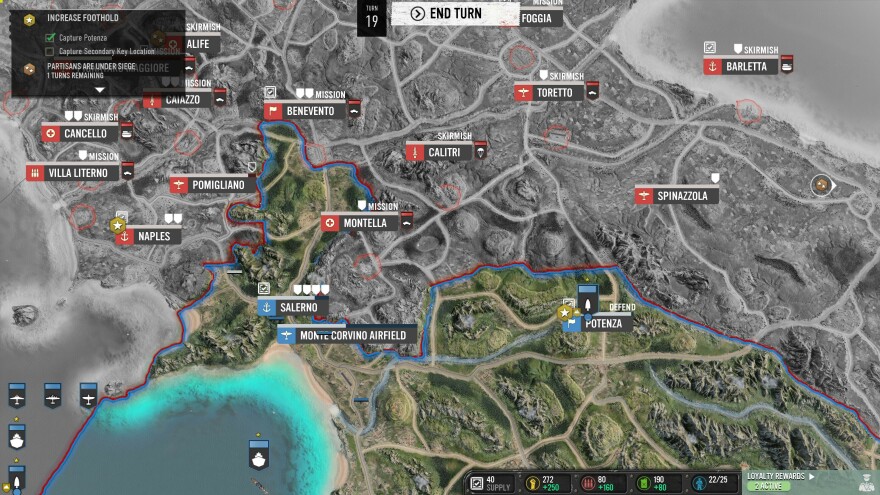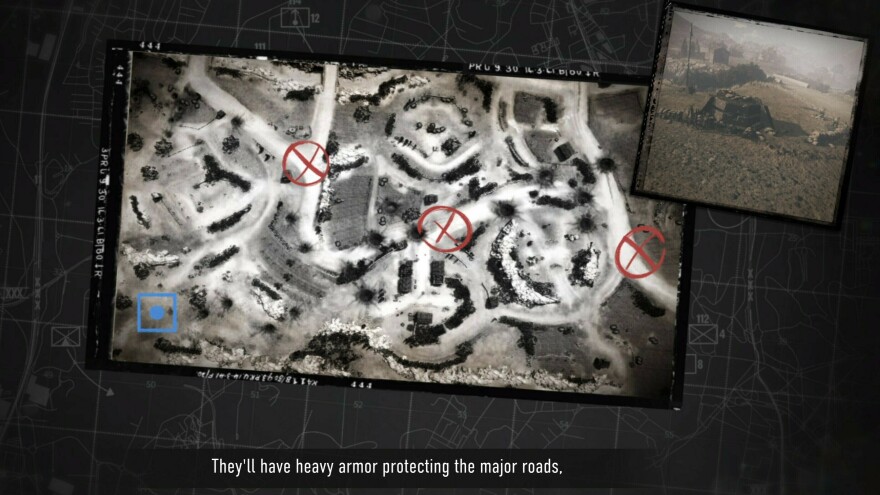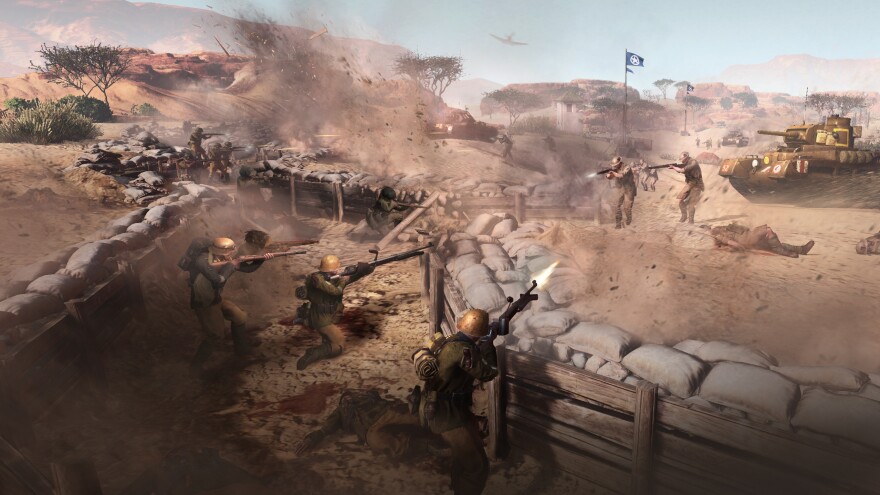Something happened in the late 90s into the 2000s. Maybe it was the success of blockbuster movies like Saving Private Ryan and The Thin Red Line, or maybe it was just the right amount of distance away from one of the worst conflicts in history, but you couldn't throw a rock in a video game store without hitting a new World War II-based title. The craze spawned what are now some of the industry's most profitable franchises (remember when Call of Duty was set exclusively in WWII?), and eventually led to a certified strategy hit, Company of Heroes.
Company of Heroes 3 is the newest installment in the 17-year old series, this time set in the Mediterranean Theater. Developed by Relic Entertainment, the real-time strategy game retains most of the mechanics that fans of previous games will be familiar with: controllable and upgradeable units, destructible environments, and capture points that provide precious victory points and resources. Those resources — fuel, ammunition, and manpower — dictate the number and type of units you're able to build.

A promising Italian campaign
But while Company of Heroes 3 may return to familiar mechanics, it expands its scope Italy and North Africa — theaters too often overlooked by other WWII games. I was excited to test what Relic calls the "dynamic" Italian single-player campaign, which allows you to set your own course for re-taking Italy through a zoomed-out strategic map. Fans of Star Wars: Empire at War or Total War will be familiar with that turn-based approach, where friendly territory is determined by control of several major towns and cities and battles zoom-in to the familiar tactical view.
This Italian campaign promises ultimate freedom, but delivers a restrictive early game. You're locked into a small unit headcount at the start, which means that sometimes you're invading a country with just one infantry unit. It wasn't until turn 30 or so when I'd captured nearly half of Italy that the game opened up for me and I felt empowered to do what I wanted.
On the ground, the new dynamic environment shines in skirmishes like the one in Potenza, where you're tasked with capturing several enemy strongholds sitting atop heavily guarded hills. The puzzle is how to conquer each stronghold without getting torn apart: Usually the right answer is to flank them. Once I figured this out, as well as properly used the resources provided, each following skirmish got a little more repetitive.

Balance of power
But while the single-player gameplay could irritate me, Company of Heroes 3 really soars in its multiplayer. Early on, I enlisted my brother to help try the co-op mode. Neither of us are slouches when it comes to real-time strategy games, and we felt comfortable enough with the mechanics to take on two computer-controlled Wehrmacht commanders at normal difficulty. Three and a half minutes later, we were staring at a defeat screen wondering how we got steamrolled so quickly.
Multiplayer gameplay is nothing like the methodical campaign skirmishes — it's fast, intense, and unrelenting. My first thought was that the single-player did not adequately prepare me at all. You can't pause, and you better know how to use your faction's tech tree, or else you'll find yourself with your back against your command center watching the enemy's victory points stack up.
One of the phrases Relic uses to describe the balance of victory points in Company of Heroes 3 is "tug of war." Part of our undoing, we realized, was that we lost momentum by focusing too much on central strongholds and not enough on retaking smaller capture points. Our plan from then on was to keep mixing it up and re-strategizing after we'd failed, which was frustrating, but also fun. Eventually, we found the right balance between capturing points and upgrading our tech trees, which usually led to the fastest and cheapest way to obtain tanks possible.

Real-time strategy resurgent
Company of Heroes 3 is no ordinary real-time strategy game. The core mechanics are much more complicated than I expected, which is a real achievement. Another is the art direction, in both the dynamic single-player campaign and the skirmishes. The colors are bright, and everything from the overview of Italy to the tiny soldiers you send into battle have a beautiful cartoon quality to them.
Overall, Company of Heroes 3 deserves a spot in any WWII buff or real-time strategy aficionado's game library. Multiplayer games are as sharp, intense, and addicting as ever, while the new sandbox mechanics of the dynamic single-player campaign give players a fresh (if sometimes frustrating) experience.
James Perkins Mastromarino contributed to this story. contributed to this story
Copyright 2024 NPR. To see more, visit https://www.npr.org.








